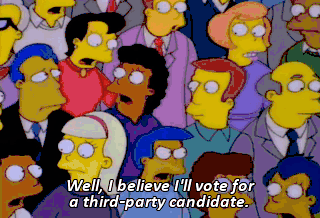Background:
We measure public opinion in the country today by asking people questions and then creating statistics about these much-directed questions. The study of American public opinion attempts to understand how and why the American People think and act the way they do about politics and policy issues.
George Gallup first developed polling people about political and public opinion when he did it for his mother-in-law who was running for office in 1932. Her victory excited him and made him continue his quest to understand people’s minds. The Gallup Organization does the same thing George Gallup started many years ago, just on a broader scale.
The Gallup Organization uses approximately 1,000 to 1,500 people in a sample to accurately represent a cross-section of voters. They try their best to give a random sampling, which means that everyone has an equal chance of being selected as part of the sample. However, even with random sampling, there is always going to be sampling error. This means that polling is not an exact science and involves estimation. For example, if there was a poll that said it has a ±5% sampling error, this means that 95% of the time the poll is within 5% of what the entire population thinks. So for a poll that says 70% of the people in America support the President’s handling of the War on Terror with a ±5% sampling error, the figure is somewhere between 65% and 75%.
Project Directions:
You may do this part of the assignment in pairs, or choose to work by yourself.
You are going to create a poll of 5 questions about any topic in Government and Politics. You are to administer this poll to at least 100 random people each.
You will want to either have this poll completely randomized. I will caution you though, to think carefully about how to get proper and valid poll results; think about how you will conduct this poll and to whom you will ask.
Remember, the more randomized the poll is and the more people you ask, the more accurate your findings will be. (If you choose to do this with a partner, you will need to double your sample size.)
- Tabulate the results and create a chart or graph of your results digitally on Google Slides. This can be done for you through Google Sheets or Excel.
- With your information, you are to individually hand in a write-up/analysis of your results and your experience, not exceeding two pages.
- You are finally going to give a quick presentation to the entire class about your poll, your findings, and how you think your poll results compare to the professional polling efforts. Be prepared to answer questions.
Student Sample:
This is a simple one, there is a lot more information that can be included on your slide or slides. Be sure to include your name.





